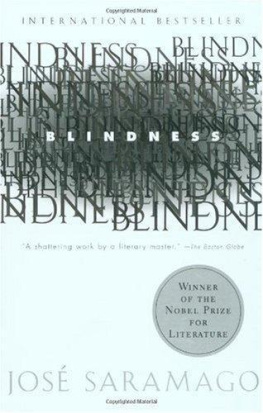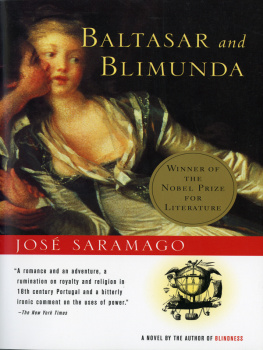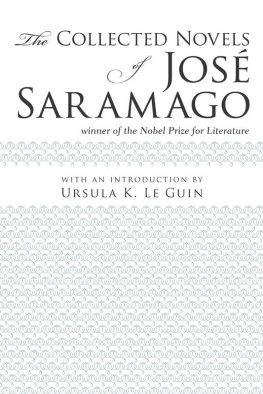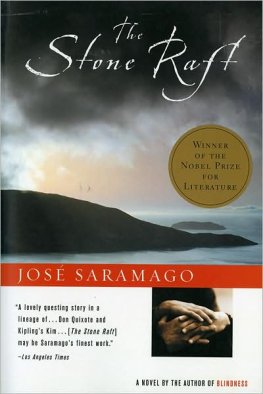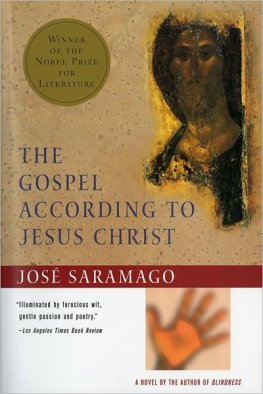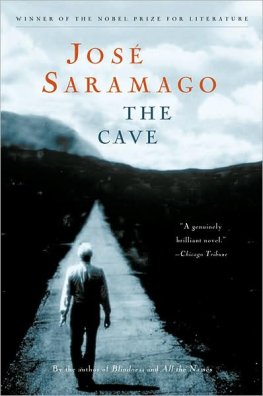Jose Saramago - The Lives of Things
Here you can read online Jose Saramago - The Lives of Things full text of the book (entire story) in english for free. Download pdf and epub, get meaning, cover and reviews about this ebook. year: 2012, publisher: Verso, genre: Detective and thriller. Description of the work, (preface) as well as reviews are available. Best literature library LitArk.com created for fans of good reading and offers a wide selection of genres:
Romance novel
Science fiction
Adventure
Detective
Science
History
Home and family
Prose
Art
Politics
Computer
Non-fiction
Religion
Business
Children
Humor
Choose a favorite category and find really read worthwhile books. Enjoy immersion in the world of imagination, feel the emotions of the characters or learn something new for yourself, make an fascinating discovery.

- Book:The Lives of Things
- Author:
- Publisher:Verso
- Genre:
- Year:2012
- Rating:5 / 5
- Favourites:Add to favourites
- Your mark:
- 100
- 1
- 2
- 3
- 4
- 5
The Lives of Things: summary, description and annotation
We offer to read an annotation, description, summary or preface (depends on what the author of the book "The Lives of Things" wrote himself). If you haven't found the necessary information about the book — write in the comments, we will try to find it.
The Lives of Things — read online for free the complete book (whole text) full work
Below is the text of the book, divided by pages. System saving the place of the last page read, allows you to conveniently read the book "The Lives of Things" online for free, without having to search again every time where you left off. Put a bookmark, and you can go to the page where you finished reading at any time.
Font size:
Interval:
Bookmark:
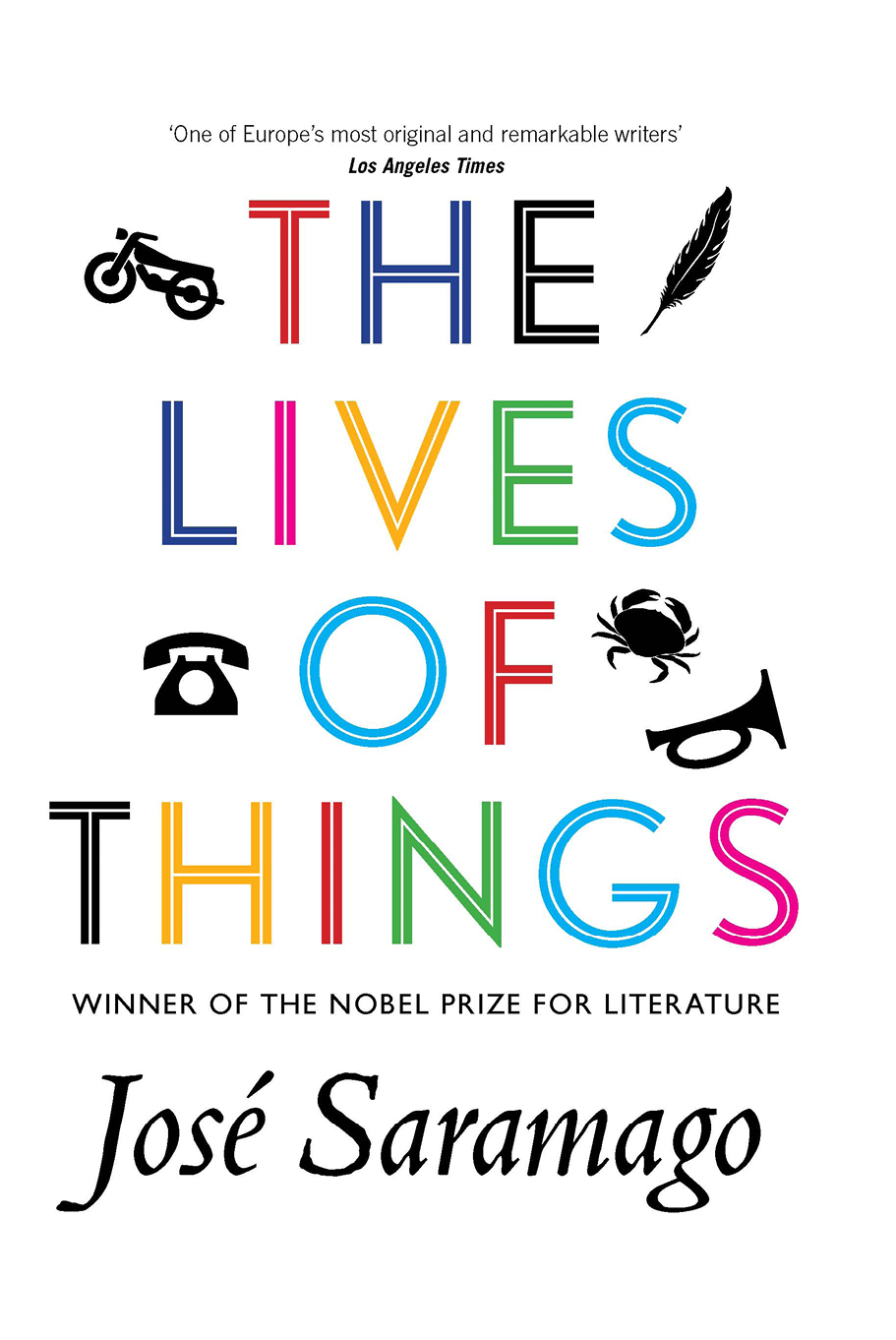
This eBook is licensed to Maya Adereth, m.adereth@gmail.com on 12/31/2017
THE LIVES OF THINGS
Short Stories
Jos Saramago
Translated by
Giovanni Pontiero

London New York
This eBook is licensed to Maya Adereth, m.adereth@gmail.com on 12/31/2017
This English-language edition first published by Verso 2012
Verso 2012
Translation and foreword Giovanni Pontiero 2012
First published as Objecto Quase
Editora Duetto 1978
All rights reserved
The moral rights of the authors have been asserted
1 3 5 7 9 10 8 6 4 2
Verso
UK: 6 Meard Street, London W1F 0EG
US: 20 Jay Street, Suite 1010, Brooklyn, NY 11201
www.versobooks.com
Verso is the imprint of New Left Books
Epub ISBN-13: 978-1-84467-908-9
British Library Cataloguing in Publication Data
A catalogue record for this book is available from the British Library
Library of Congress Cataloging-in-Publication Data
Saramago, Jos.
[Objecto quase. English]
The lives of things : short stories / Jos Saramago ;
translated by Giovanni Pontiero.
p. cm.
ISBN 978-1-84467-878-5 (alk. paper)
I. Pontiero, Giovanni. II. Title.
PQ9281.A66O2513 2012
869.3 ' 42- -dc23
2011047923
This eBook is licensed to Maya Adereth, m.adereth@gmail.com on 12/31/2017
If man is shaped by his environment, his environment must be made human.
K. Marx and F. Engels
The Holy Family
This eBook is licensed to Maya Adereth, m.adereth@gmail.com on 12/31/2017
Contents
This eBook is licensed to Maya Adereth, m.adereth@gmail.com on 12/31/2017
Foreword
First published in 1978, this collection of six stories, originally entitled Objecto Quase , attests to the inventive powers of a remarkable novelist who is no less adept at mastering the techniques of shorter narrative forms. A master of suspense, he holds our attention with a subtle alternation of incisive statements and speculative digressions. Three of the stories, The Chair, Embargo and Things, might be described as political allegories evoking the horror and repression which paralysed Portugal under the harsh regime of Salazar. The most powerful of these is The Chair, the symbol of the dictators dramatic departure from the political scene on 6 September 1968, when the deckchair in which he was sitting collapsed and the shock precipitated a brain haemorrhage. In these narratives Saramago deploys his incomparable skill in expanding a metaphor and weaving myriad associations around the same obsessive image. With humour and compassion, he denounces the abuse of power and pays tribute to human resilience and mans will to survive in the face of injustice and institutionalised tyranny. Here the moods vary from bitter satire and outrageous parody to Kafkaesque hallucinations when fear engenders a sense of unreality and drives a bewildered society to the brink of despair. The prevailing atmosphere in these stories is that of claustrophobia and collective hysteria. Hence the triumphant note of celebration when the fetters of censorship and prohibition are finally broken and the human spirit can breathe freely once more.
The remaining three stories in the collection provide an interesting contrast in terms of theme and tonality. And although written in a more lyrical vein, they reveal the same essential process of illumination and enhancement. The extinction of The Centaur is mourned with unbearable nostalgia and pathos as the author probes the disquieting duality of this mythical creature. Revenge explores the awakening desires and perceptions of adolescence with the utmost delicacy, and Reflux admirably illustrates the authors instinctive sense of form and symmetry even while elaborating the most extravagant fantasies.
The one recurring theme in this collection is that of death. In these stories, however, death assumes many guises and is not necessarily physical. Nor need death imply finality. The long-awaited exit of a dictator or monarch in Saramagos fictions nearly always heralds a new era of freedom whereby ordinary men and women can emerge from nightmare and rebuild their lives.
Giovanni Pontiero
Manchester, May 1994
This eBook is licensed to Maya Adereth, m.adereth@gmail.com on 12/31/2017
The Chair
The chair started to fall, to come crashing down, to topple, but not, strictly speaking, to come to bits. Strictly speaking, to come to bits means bits fall off. Now no one speaks of the chair having bits, and if it had bits, such as arms on each side, then you would refer to the arms of the chair falling off rather than coming to bits. But now that I remember, it has to be said that heavy rain comes down in buckets, so why should chairs not be able to come down in bits? At least for the sake of poetic licence? At least for the sake of being able to use an expression referred to as style? Therefore accept that chairs come to bits, although preferably they should simply fall, topple, or come crashing down. The person who does end up in pieces is the poor wretch who was sitting in this chair and is seated there no longer, but falling, as is the case, and style will exploit the variety of words which never say the same thing, however much we might want them to. If they were to say the same thing, if they were to group together through affinity of structure and origin, then life would be much simpler, by means of successive reduction, down to onomatopoeia which is not simple either, and so on and so forth, probably to silence, to what we might term the general synonym or omnivalent. It is not even onomatopoeia, or cannot be formed from this articulated sound (since the human voice does not have pure, unarticulated sounds, except perhaps in singing, and even then one would have to listen up close) formed in the throat of the person who is toppling or falling although no star, both words with heraldic echoes, which now describe anything which is about to come to pieces, therefore it did not sound right to join the parallel ending to this verb, which would settle the choice and complete the circle. Thus proving that the world is not perfect.
One could say that the chair about to topple is perfect. But times change, tastes and values change, what once seemed perfect is no longer judged to be so, for reasons beyond our control, yet which would not be reasons had times not changed. Or time. How much time need not concern us, nor need we describe or simply specify the style of furniture which would identify the chair as being one of many, especially since as a chair it naturally belongs to a simple sub-group or collateral branch, altogether different in size and function, from these sturdy patriarchs, known as tables, sideboards, wardrobes, display-cabinets for silver and crockery, or beds from which it is obviously much more difficult, if not impossible, to fall, for it is while getting out of bed that one is in danger of breaking a leg or while getting into bed that one can slip on the mat, when in fact the breaking of a leg was not precisely caused by slipping on the mat. Nor do we think it important to say from what kind of wood such a small item of furniture is made, its very name suggests it was destined to fall, unless the Latin verb cetera is some linguistic trap, if cetera is indeed Latin, as it sounds it ought to be. Any tree would have served with the exception of pine which has exhausted its properties in the making of warships and is now quite commonplace, or cherry which can easily warp, or the fig-tree which is prone to splintering, especially in hot weather or when one reaches out too far along the branch to pluck a fig; with the exception of these trees which are flawed, and others because of the many properties they possess, as in the case of ironwood which never decays yet has too much weight for the required volume. Another unsuitable wood is ebony, which is simply another name for ironwood, and we have already seen the problem of using synonyms or what are assumed to be synonyms. Not so much in this analysis of botanical matters which pays no attention to synonyms, yet scrupulously observes the two different names which different people have given to the same thing. You may be sure that the name ironwood was given or weighed up by whoever had to carry it on his back. There is no safer bet.
Next pageFont size:
Interval:
Bookmark:
Similar books «The Lives of Things»
Look at similar books to The Lives of Things. We have selected literature similar in name and meaning in the hope of providing readers with more options to find new, interesting, not yet read works.
Discussion, reviews of the book The Lives of Things and just readers' own opinions. Leave your comments, write what you think about the work, its meaning or the main characters. Specify what exactly you liked and what you didn't like, and why you think so.



